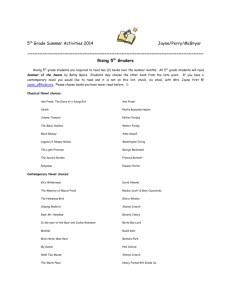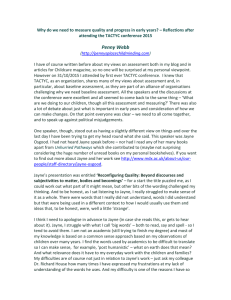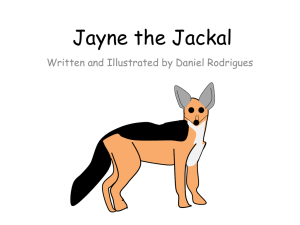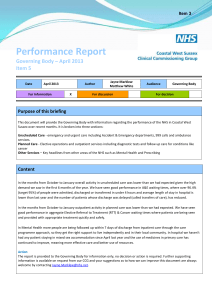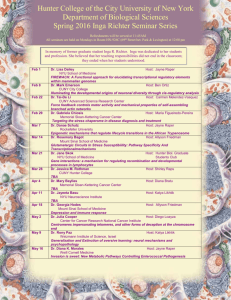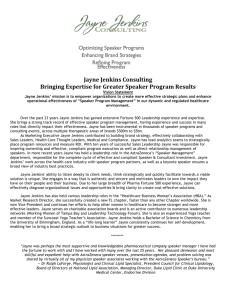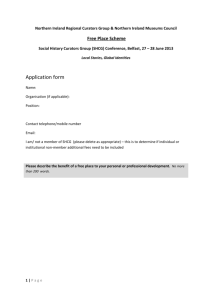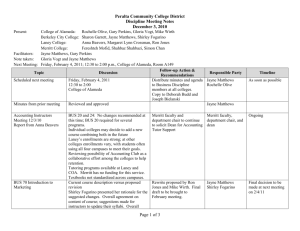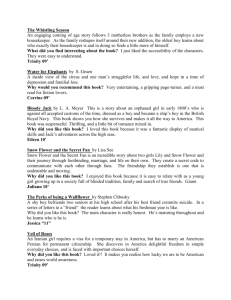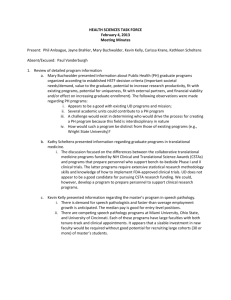correct entries
advertisement
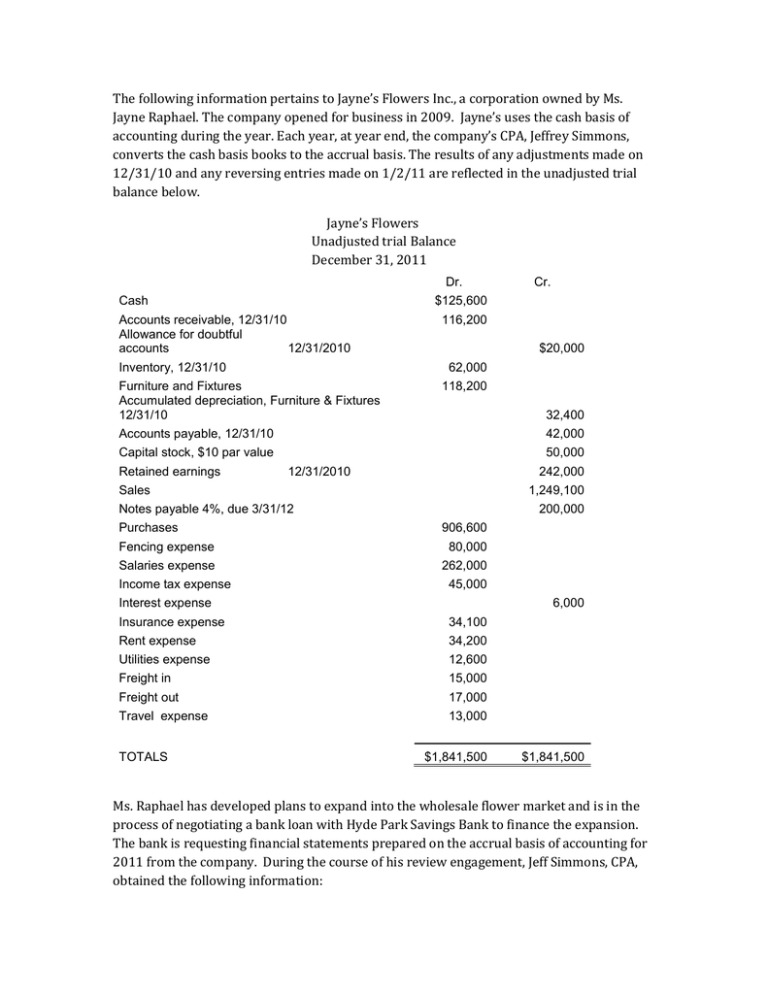
The following information pertains to Jayne’s Flowers Inc., a corporation owned by Ms. Jayne Raphael. The company opened for business in 2009. Jayne’s uses the cash basis of accounting during the year. Each year, at year end, the company’s CPA, Jeffrey Simmons, converts the cash basis books to the accrual basis. The results of any adjustments made on 12/31/10 and any reversing entries made on 1/2/11 are reflected in the unadjusted trial balance below. Jayne’s Flowers Unadjusted trial Balance December 31, 2011 Dr. Cash Accounts receivable, 12/31/10 Allowance for doubtful accounts 12/31/2010 Inventory, 12/31/10 116,200 $20,000 62,000 Furniture and Fixtures Accumulated depreciation, Furniture & Fixtures 12/31/10 118,200 32,400 Accounts payable, 12/31/10 42,000 Capital stock, $10 par value Retained earnings 50,000 12/31/2010 242,000 Sales 1,249,100 Notes payable 4%, due 3/31/12 Purchases 200,000 906,600 Fencing expense 80,000 Salaries expense 262,000 Income tax expense 45,000 Interest expense 6,000 Insurance expense 34,100 Rent expense 34,200 Utilities expense 12,600 Freight in 15,000 Freight out 17,000 Travel expense 13,000 TOTALS Cr. $125,600 $1,841,500 $1,841,500 Ms. Raphael has developed plans to expand into the wholesale flower market and is in the process of negotiating a bank loan with Hyde Park Savings Bank to finance the expansion. The bank is requesting financial statements prepared on the accrual basis of accounting for 2011 from the company. During the course of his review engagement, Jeff Simmons, CPA, obtained the following information: 1. Amounts due from customers totaled $175,000 at 12/31/2011. 2. In analyzing amounts due from customers at 12/31/2011, Simmons discovers that Jayne’s has a $6,000 receivable more than 9 months overdue from Jim’s Retail Store. Simmons discovers that Jim’s filed for bankruptcy on 12/02/2011 and determines that it is highly unlikely that Jayne’s will recover any of the $6,000 and that the amount should be written off. 3. A further analysis and aging of accounts receivable at 12/31/2011 shows approximately $18,000 of potential uncollectible accounts other than the Jim’s Retail Store account. 4. Unpaid invoices for flower purchases totaled $42,000 at 12/31/2010 and $54,000 at 12/31/2011. 5. Based on a physical count, the inventory at 12/31/2011 was valued at $52,000. 6. On May 1, 2011, Jayne’s paid $26,100 to renew its comprehensive insurance coverage for one year. The premium on the previous one year policy, which expired on April 30, 2011, was $24,000. The company made the appropriate adjusted entry on 12/31/2010, which was subsequently reversed on 1/2/2011. 7. Jayne’s installed new fencing around the perimeter of the property. The installation was completed on 6/28/2011 at a cost of $80,000. Jayne estimates the useful life of the fencing to be 20 years. Jayne uses straight-line depreciation. 8. In reviewing the cash receipts journal, Simmons discovers that a piece of furniture purchased on 6/30/2008 for $25,000 being depreciated on the double –declining balance method with an estimated salvage value of $5000 and a useful life of 5 years, was sold on March 31, 2011 for $6000 cash. Unfamiliar with the proper accounting, the bookkeeper debited cash and credit sales for the receipt of the $6,000. 9. The note payable was taken out on 4/1/2010. A proper accrual was made at 12/31/10 and the entry was reversed at 1/2/2011. All principal and interest are due at maturity. 10. On November 15, 2011, one of Jayne’s delivery drivers was in an accident with another vehicle. Unfortunately, the driver had a few beers at lunch and was cited for impaired driving. The company is being sued for $200,000. Fortunately, the comprehensive insurance policy will cover all but the first $40,000. The first court date has been scheduled for Feb. 15, 2012. Jayne’s attorney advises her to settle at the time. The estimated settlement will be between $125,000 and $175,000. 11. On December 29, 2011, Jayne advanced $10,000 to a salesperson for a sales trip to New York City during the first week in January, 2012. 12. All employees are paid weekly on Friday. The average payroll is $5,000 weekly for a 6 day work week. Employees were last paid on 12/30/2011 for the week ended 12/24/2011. Because Jayne is Canadian, her policy is to give all employees paid holidays for Christmas Day and the following day, which is known as Boxing Day in Canada. Because Boxing Day falls on a Sunday, Jayne has decided to give everyone an extra day’s pay as a bonus for good performance. This will be reflected in the paychecks distributed on 1/6/2012. 13. Jayne’s has made estimated tax payments of $15,000 per quarter for the first three quarters of 2011. Jayne’s tax rate is 35% of pretax income. Required: a. Prepare a 10 column worksheet to convert the trial balance of Jayne’s Flowers to the accrual basis of accounting for the year ended December 31, 2011. Use the numbers given with the additional information (1-13) to cross-reference the postings in the adjustments column of the worksheet. The cash basis trial balance should appear in the first set of columns on your worksheet. b. Prepare a separate work paper showing your adjusting entries in good form (relating the numbers to the adjustments in the worksheet). Show any computations and provide explanations. c. Prepare accrual basis financial statements for 2011 (multiple-step income statement, classified balance sheet, and statement of retained earnings) in good form.
